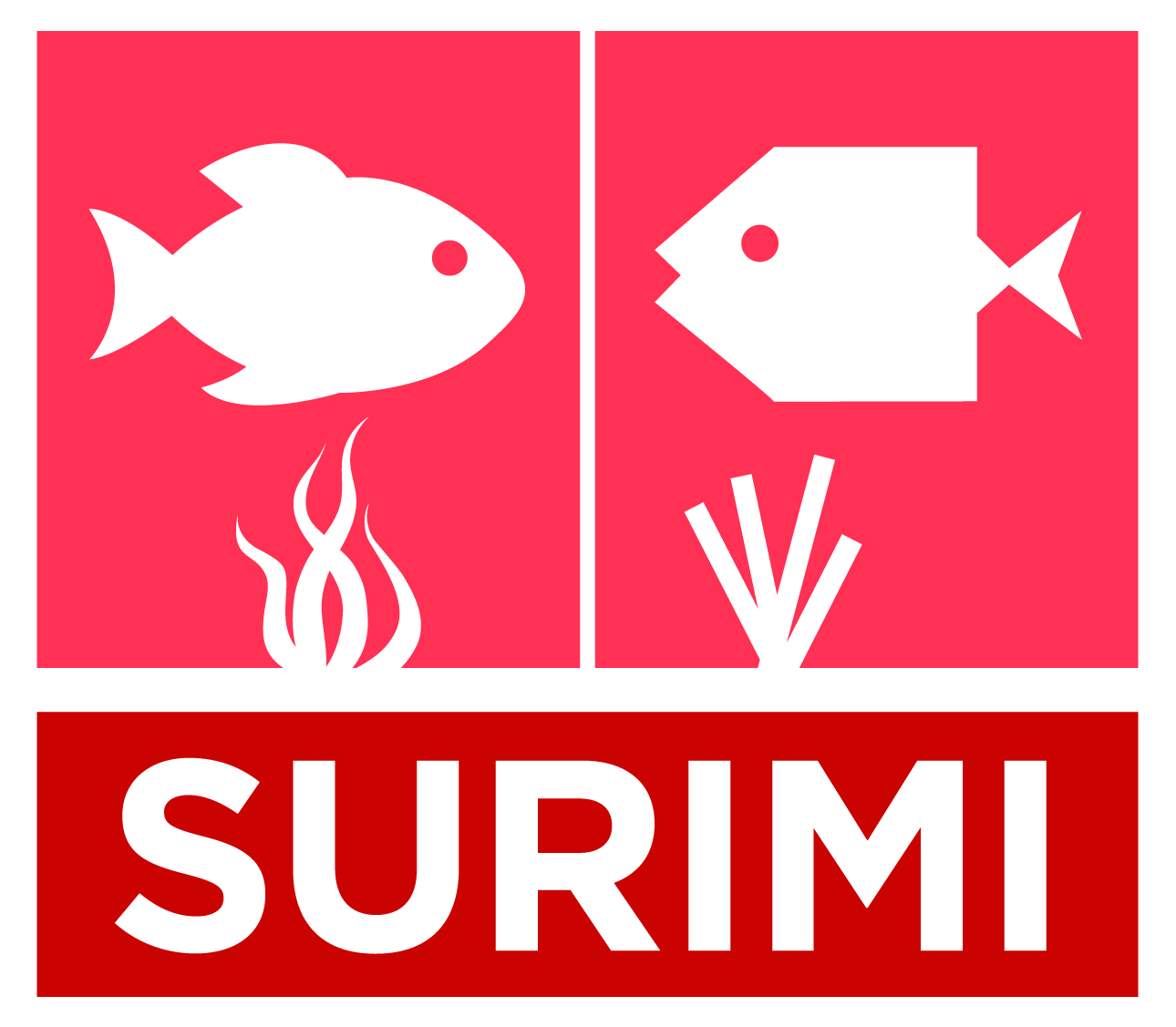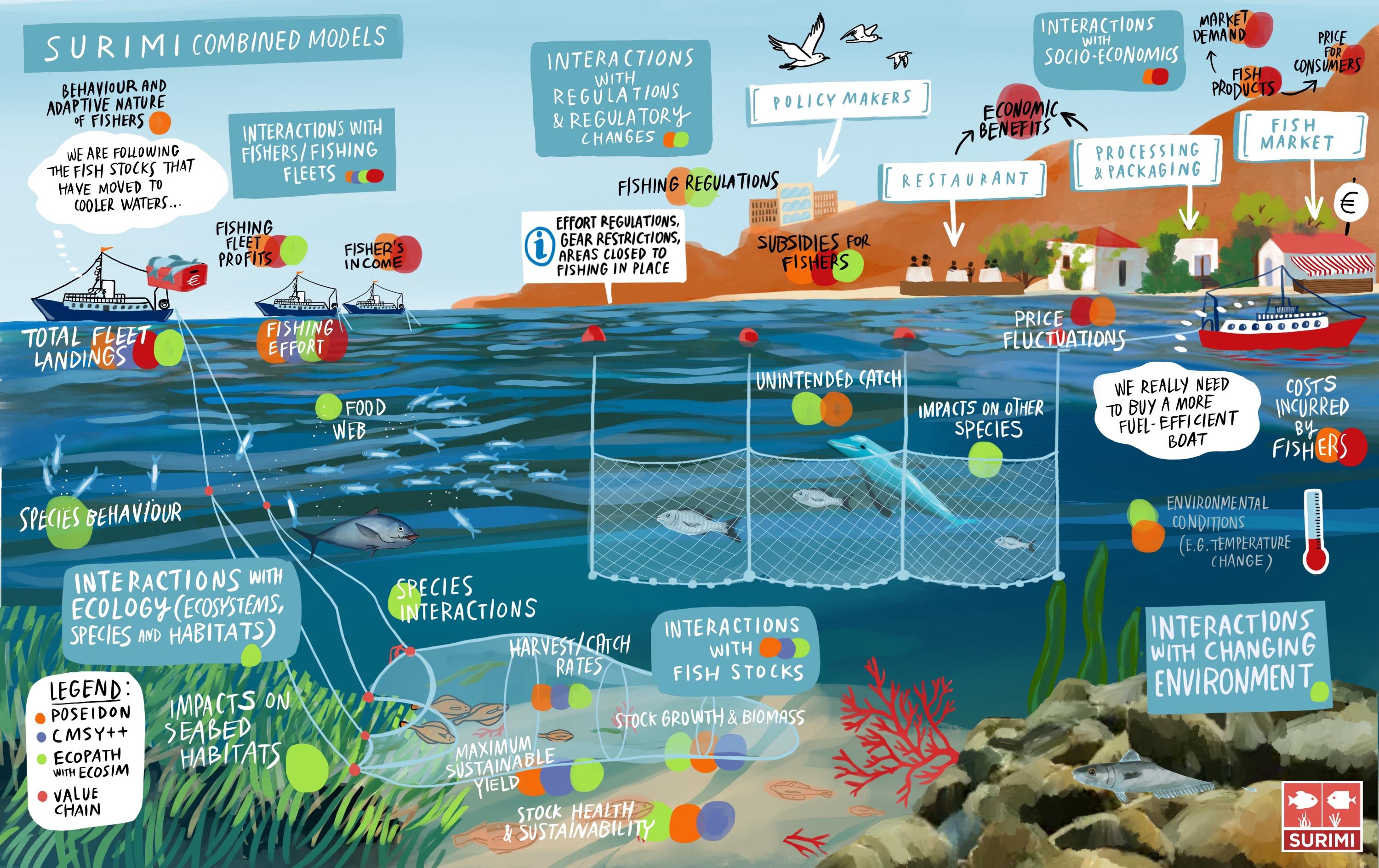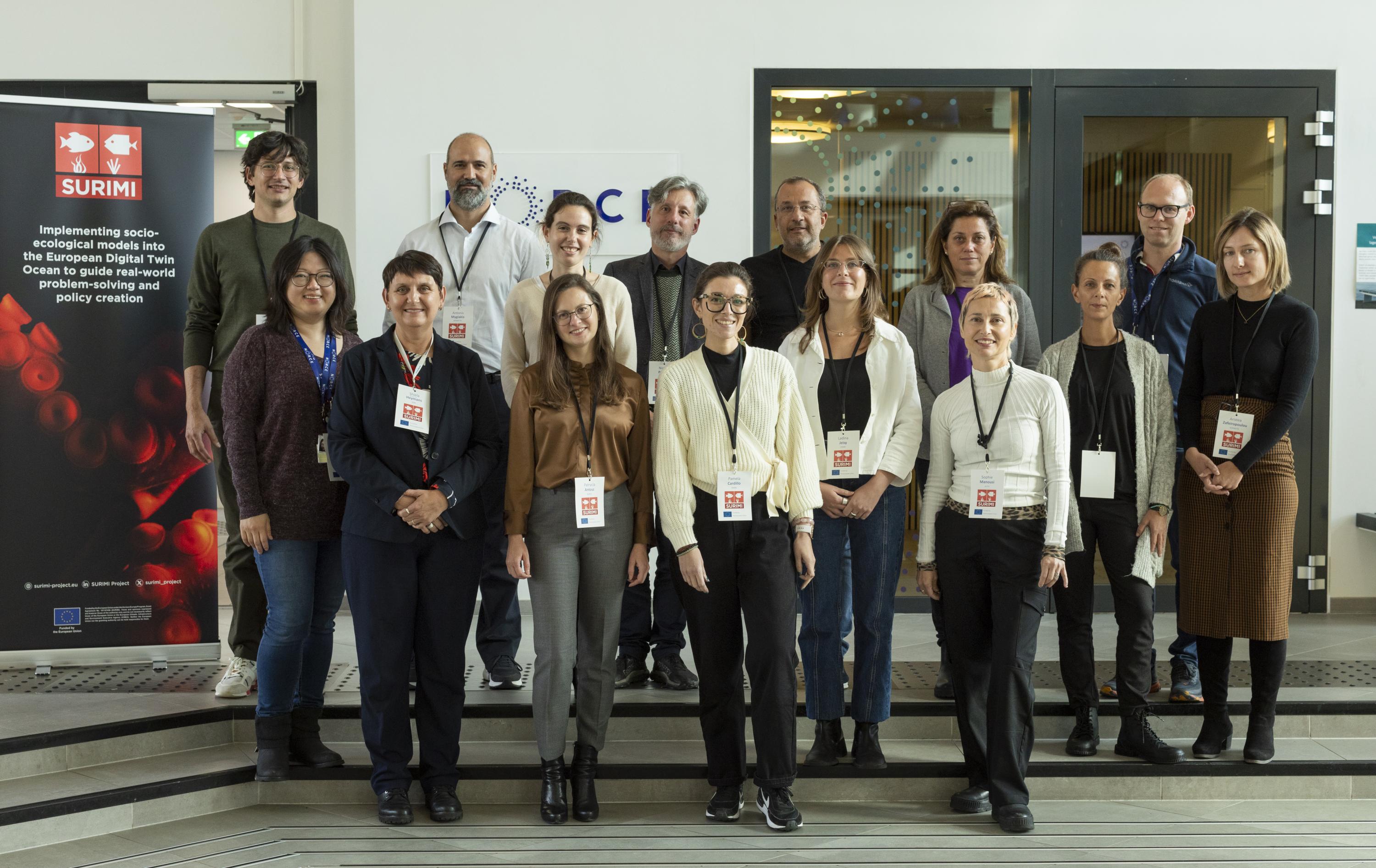
Project type | Horizon Europe, Topic: Integration of socio-ecological models into the Digital Twin Ocean (HORIZON-MISS-2023-OCEAN-01-08) |
Duration | 3 years (1 May 2024 – 30 April 2027) |
Budget | 3 million Euros |
Consortium | 8 partners |
Coordinator | NORCE Research AS |
Website | |
EMB role | Leader of WP1: Co-creation, stakeholder engagement, dissemination, exploitation and communication |
Background and Objectives
Developing the European Digital Twin of the Ocean (DTO) is a core target of the EU Mission “Restore our Ocean and Waters by 2030”. It aims to model the Ocean's multiple components, provide knowledge and understanding of the past and present, and create trustable predictions of its future behaviour.
SURIMI will contribute to the development of the DTO by developing the SURIMI toolbox. This toolbox will include a set of socio-ecological models relevant to ecosystem-based fisheries management, the data to inform them, and an interoperability layer to connect them to each other and the DTO. The toolbox will also have a user-friendly graphical interface, which will allow users to visualise the data, run customised what-if scenarios, and tailor scenarios to their specific use-cases and local twins by inputting their own data and assumptions. The whole toolbox will be integrated within the DTO infrastructure.
 The socio-ecological models, which Surimi will use and improve/develop will range from simple to highly complex models. It will be models that have been applied to traditional marine policy analysis and to management strategy evaluation. The models will be made interoperable, meaning that they will be able to exchange information and used in combination to improve predictions. To ensure interoperability Surimi will create an interoperability layer. This layer will allow any ecological, economic and policy assessment model to communicate and it will be easily usable by other DTO projects that require communication between models.
The socio-ecological models, which Surimi will use and improve/develop will range from simple to highly complex models. It will be models that have been applied to traditional marine policy analysis and to management strategy evaluation. The models will be made interoperable, meaning that they will be able to exchange information and used in combination to improve predictions. To ensure interoperability Surimi will create an interoperability layer. This layer will allow any ecological, economic and policy assessment model to communicate and it will be easily usable by other DTO projects that require communication between models.
To improve accessibility and promote usage, Surimi will also develop a user-friendly graphical interface with two components: The first one will focus on data visualization, bringing together SURIMI’s social, ecological, biological and economic data, collected at different scales and resolution, under a single interface. The second one will be a management strategy evaluation decision support tool, that will allow users to pick scenarios, define geographical boundaries, and incorporate supplementary data and expert knowledge. The outputs will be concise and easy to understand. They will also present the uncertainty of the results, and will include socio-ecological indicators developed within the SURIMI project. This simulator will analyse the impact of novel policies and scenarios on both society and the environment. SURIMI will further enhance user-friendliness by integrating Natural Language Processing. This will allow users to interact with the models entirely through text, ask questions, manipulate models, and receive results – all in 'plain' language, thanks to Artificial Intelligence transformers.

European Marine Board role
EMB is the leader of WP1 on Co-creation, stakeholder engagement, dissemination, exploitation, and communication. EMB's main role is to ensure that the SURIMI toolbox is co-designed with relevant stakeholders so that their needs are met. To this end, we will organise at least three stakeholder workshops and a survey. EMB will also lead the task of stakeholder mapping and setting up a Stakeholder Forum.
- The first stakeholder workshop was held online as a full-day event on 11 February 2025. The workshop focused on introducing the SURIMI project to stakeholders and understand their needs. You can read the report here.
- A dedicated half-day online Advisory Council workshop was held on 14 November 2025 to increase participation of fishers, for whom English is a language barrier. The workshop included translations in Spanish and French. You can read the report here.
- The second stakeholder workshop will be held in Brussels in April 2026. This workshop will show-case first prototypes to the stakeholders to obtain feedback.
Contact at European Marine Board Secretariat: Ana Rodriguez
